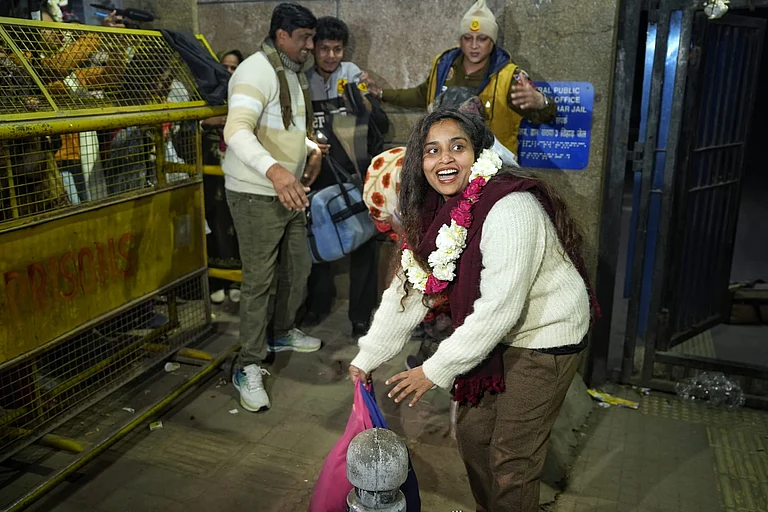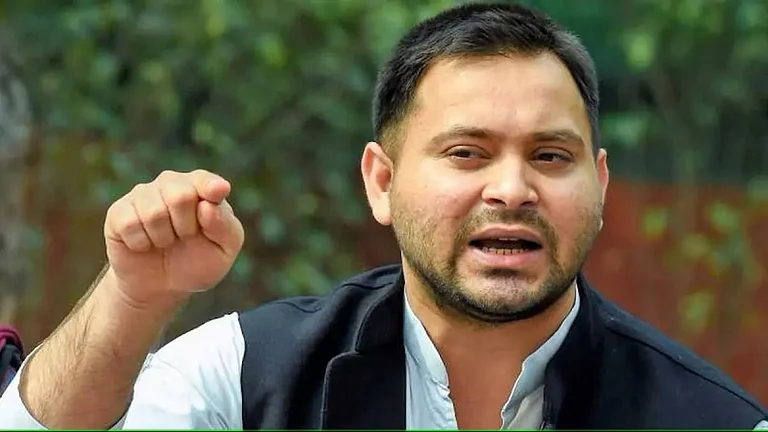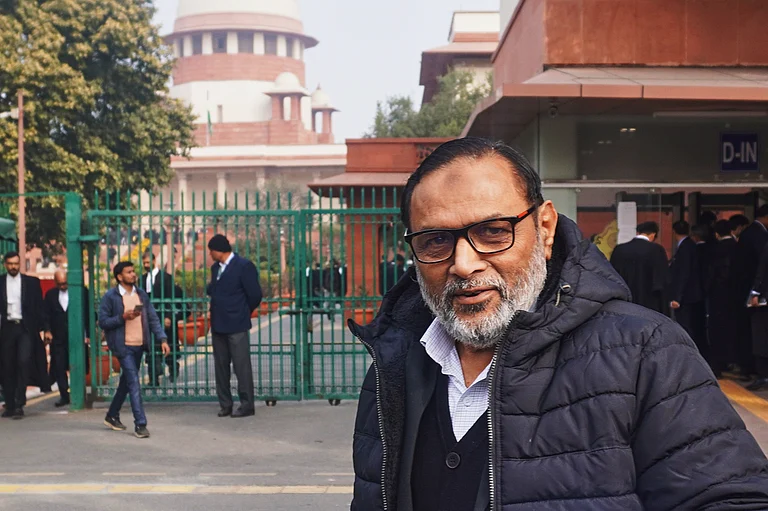While hearing Delhi Chief Minister Arvind Kejriwal's bail plea challenging the arrest by the Central Bureau of Investigation (CBI) in connection with the now-scrapped Delhi Excise Policy scam, the Supreme Court on Thursday pulled the probe agency for arresting him in the liquor policy case while he was in judicial custody in the Enforcement Directorate (ED) case.
A bench of Justices Surya Kant and Ujjal Bhuyan, who heard the matter, reserved the judgment in the case.
Why Kejriwal still in jail after bail in ED arrest?
Kejriwal was first arrested by the Enforcement Directorate (ED) on March 21, 2024, in a money laundering case in connection with the Delhi Excise Policy Case. Despite receiving bail from the top court in the ED case, the AAP chief is still behind bars due to the arrest by the CBI in a corruption case on June 26.
In 2022, the excise policy was scrapped following the Delhi lieutenant governor's order for a CBI probe into alleged irregularities and corruption involving its formulation and execution.
'Insurance arrest', 'Not a flight risk': Key arguments
Senior advocate Abhishek Singhvi, appearing for Kejriwal, told the Supreme Court that the CBI did not arrest him for nearly two years in the alleged excise policy scam and an 'insurance arrest' was made on the cusp of his release after he got bail in the "harsher" money laundering case filed by the ED.
"I am the most captive interrogatee you can find, ever. Just for insurance you arrested. No substantial material was demonstrated to justify my arrest. The grounds were vague," Singhvi said.
Singhvi also mentioned that no notice was served to Arvind Kejriwal by CBI before arrest and an ex-parte arrest order was passed by trial court.
Seeking bail for the jailed Delhi CM, Singhvi submitted that Kejriwal is a constitutional functionary and was not a flight risk. "Arvind Kejriwal is a constitutional functionary, not a flight risk", Singhvi told SC.
The CBI, however, opposed the bail plea of Kejriwal, stating that he should not be considered on par with his co-accused Manish Sisodia, Sanjay Singh, Vijay Nair and BRS leader K Kavitha in the liquor policy case. Additional Solicitor General S V Raju, appearing for CBI, said he should go to trial court for bail.
"This adventurism on his (Kejriwal) part to ask the Supreme Court to decide his bail plea as the first court should not be entertained at all. The preliminary objection is that he should first seek relief from the trial court, which is the appropriate court to assess the merits," the ASG said.
Kejriwal's Chief Ministerial post cannot be a ground for the Delhi HC to directly entertain his bail plea, ASG Raju said, adding that, "There is no special person in law at all! All other aam aadmis (common man) have to go to sessions court."
The ASG read witness statements which pointed towards how the Delhi CM was the "main conspirator" in the excise policy case.
Justice Bhuyan noted that first Special court granted regular bail and then the High Court stayed the order and now it is pending before the High Court, to which Justice Kant added that the ED complaint is also based on the same very facts of the case as CBI.
ASG Raju said that if the apex court granted bail to Kejriwal today, then it will be demoralising for the High Court. "Don't say that. Whatever order we pass, we will ensure nothing like that happens," the SC bench said.
After hearing rejoinder submissions from Senior Advocate Abhishek Manu Singhvi, the Supreme Court reserved its judgment in the matter.
Kejriwal vs CBI: Delhi HC's take
On August 5, the Delhi High Court upheld the arrest of Kejriwal as legal, and said there was no malice in the acts done by the CBI which was able to demonstrate how the AAP supremo could influence witnesses.
Noting that the loop of evidence against the chief minister closed after the collection of relevant evidence following his arrest by the CBI and it cannot be said that it was without any justifiable reason or illegal.
The high court had dismissed Kejriwal's plea challenging his arrest, saying it was only after sufficient evidence was collected and sanction was obtained in April 2024 that the agency proceeded with further probe against him. The high court had also asked him to move the trial court for regular bail in the CBI case.
Kejriwal arrest: A timeline of key events
October 2023: ED sent first summons to Kejriwal in connection with the Delhi Excise Policy scam.
November 2023: Skipping ED’s first summons on November 2, Kejriwal went to Madhya Pradesh to address a political rally.
December 2023: Kejriwal skipped second summon by ED and termed it “illegal and politically motivated”.
January 2024: Kejriwal skipped third summon alleging a conspiracy by the Central government.
- January 2024: ED issued fourth summons to Kejriwal and asked him to appear for questioning on January 18.
- January 2024: Kejriwal responded to ED’s summonses, asking why he was not an accused in the case.
February 2024: Kejriwal skipped fifth summon by the ED.
February 2024: ED moved court alleging that Kejriwal was not complying with the summons after it for the sixth time.
February 2024: Delhi court granted Kejriwal exemption from personal appearance for the day.
February 2024: Kejriwal skipped seventh summon. AAP claims that they had raised legal questions on "illegal summon" of ED and had not received a response.
March 2024: A sessions court granted bail to Kejriwal on two complaints filed by ED against him for skipping its summonses in the case.
March 2024: Kejriwal moves Delhi HC against ED. The Delhi CM told the high court that he won’t appear before the central probe agency as there was a ‘clear intent’ to arrest him with elections around the corner.
March 2024: Delhi HC refused to grant Kejriwal any protection from coercive action.
March 2024: Hours with Delhi HC's denial, Kejriwal moved the Supreme Court seeking protection from any coercive action by the Enforcement Directorate.
March 2024: Upon skipping the summonses for the ninth time, Kejriwal was arrested by ED on March 21.
May 10, 2024: Supreme Court granted interim bail to Kejriwal till June 1 to campaign in Lok Sabha elections. He was asked to return to jail on June 2.
June 1, 2024: Kejriwal moved Delhi court seeking interim bail.
June 2, 2024: Kejriwal surrendered at the Tihar jail
June 5, 2024: Court reserved for June 5 order on Kejriwal's interim bail plea.
June 5, 2024: Court denied interim bail to Kejriwal on medical grounds.
June 20, 2024: Delhi court grants regular bail to Kejriwal in the money laundering case connected to the now-scrapped liquor policy.
June 21, 2024: ED moved Delhi High Court opposing Kejriwal’s release. HC blocks Kejriwal’s bail
June 26, 2024: CBI arrested Kejriwal in corruption case
July 12,2024: Supreme Court granted Kejriwal an interim bail and redirected the petition challenging his arrest by the ED to a larger bench.






























